
This week’s Democratic National Convention will be far from the first time that Hillary Clinton will find herself the center of attention. As the crowning moment—so far—of a life in politics, her presumed nomination as the party’s nominee for president will put her in a familiar spot beneath the nation’s spotlight.
In 1969, however, things were different. Hillary Rodham received early national attention as a student speaker at Wellesley College’s graduation that year—a role that earned her a spot in a LIFE Magazine round-up of the words presented by the nation’s student leaders at their graduations. “Through their scathing words and clenched fists,” the magazine assessed, “the Class of ’69 made clear that the protest will go on.”
“We are, all of us, exploring a world that none of us understands and attempting to create within that uncertainty,” she told her classmates, in a speech that LIFE excerpted. “But there are some things we feel—we feel that our prevailing, acquisitive and competitive corporate life, including, tragically, the universities, is not the way of life for us. We’re searching for more immediate, ecstatic and penetrating modes of living. And so our questions, our questions about our institutions, about our colleges, about our churches, about our government, continue.”
Though the future candidate’s picture only appeared as a small portrait, among many others, LIFE did send a photographer to meet with her at her family home in Illinois. Here are some of the images that did not make it to print:
LIFE With Hillary: Portraits of a Wellesley Grad, 1969
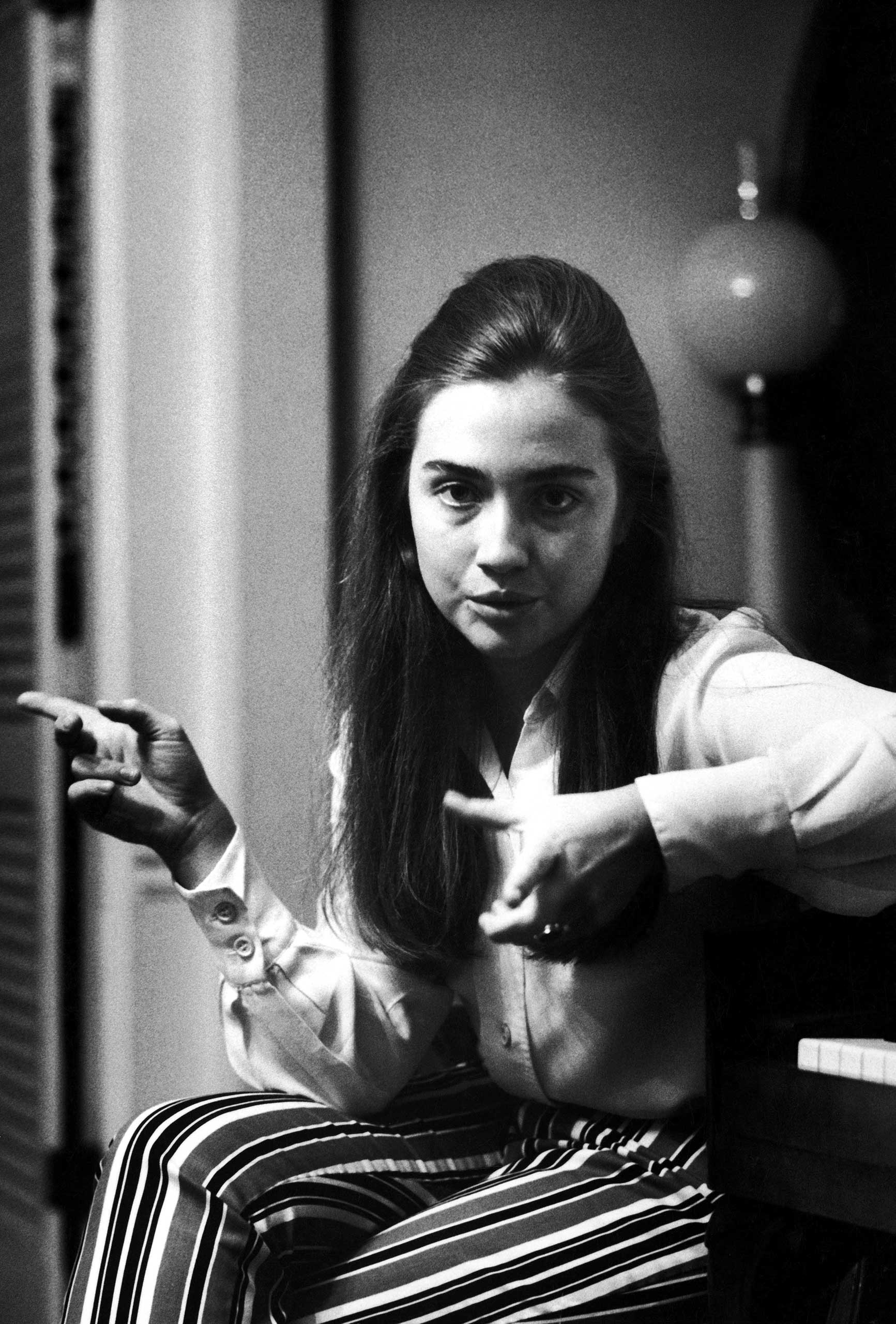
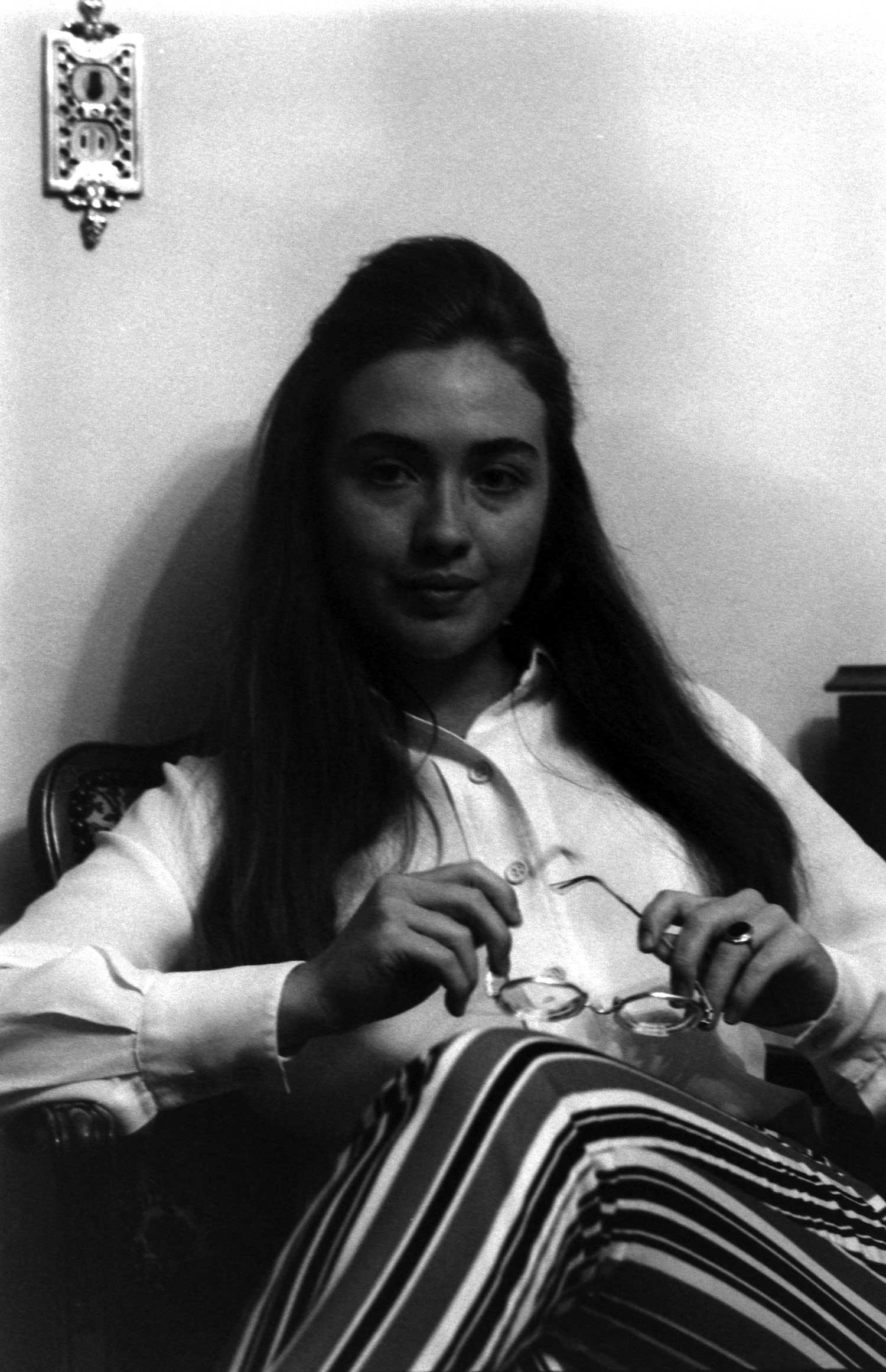

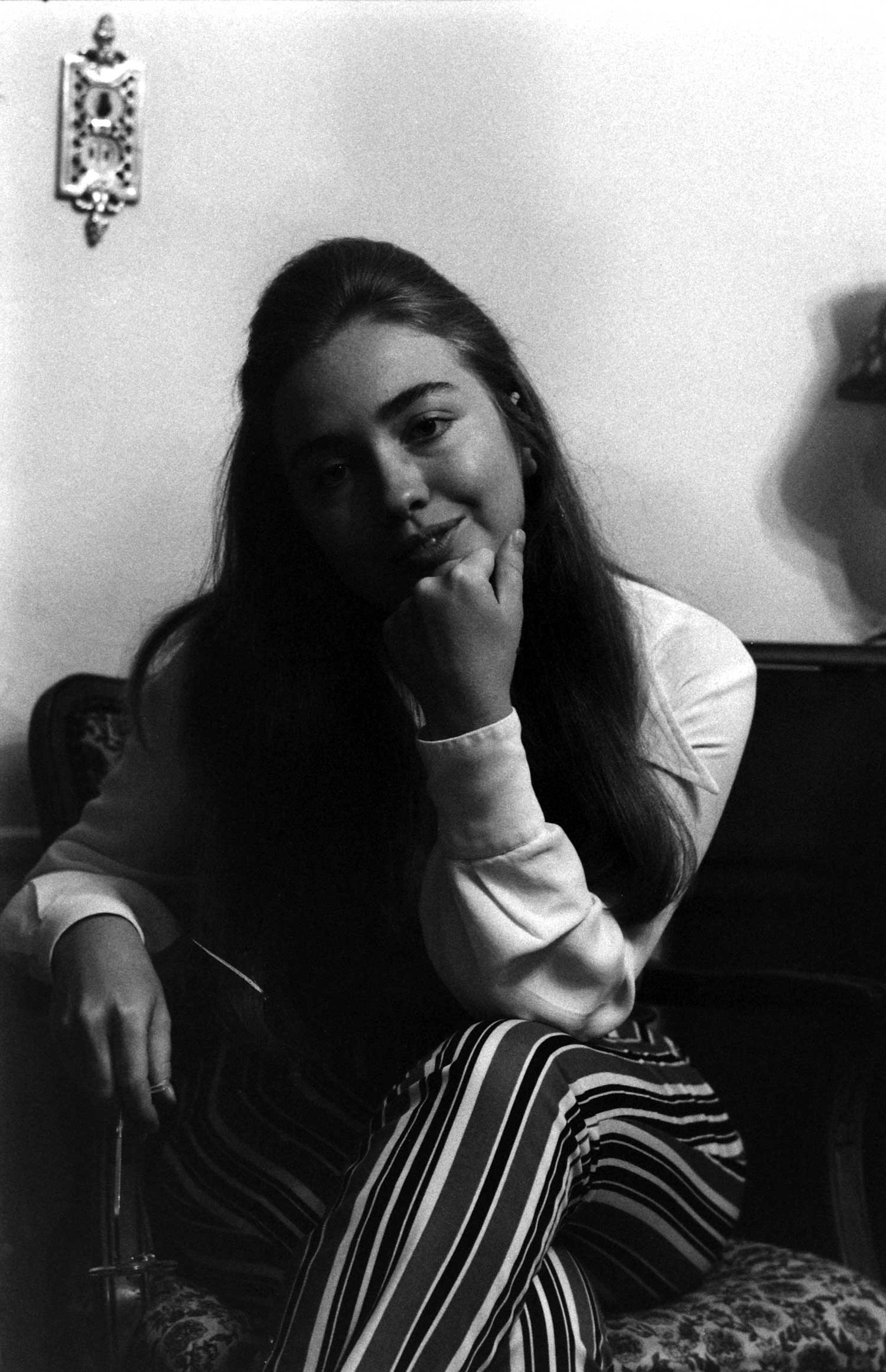
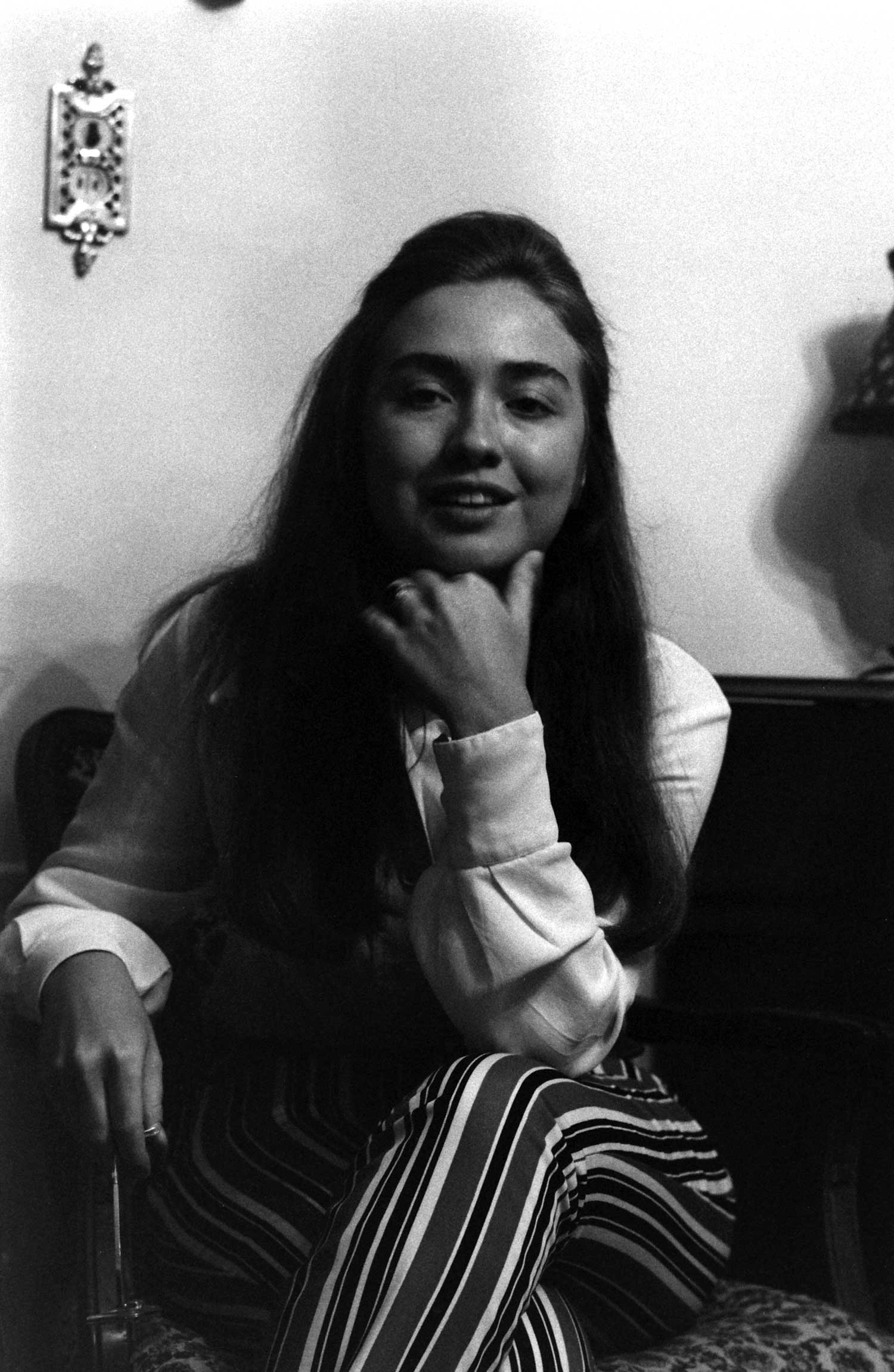

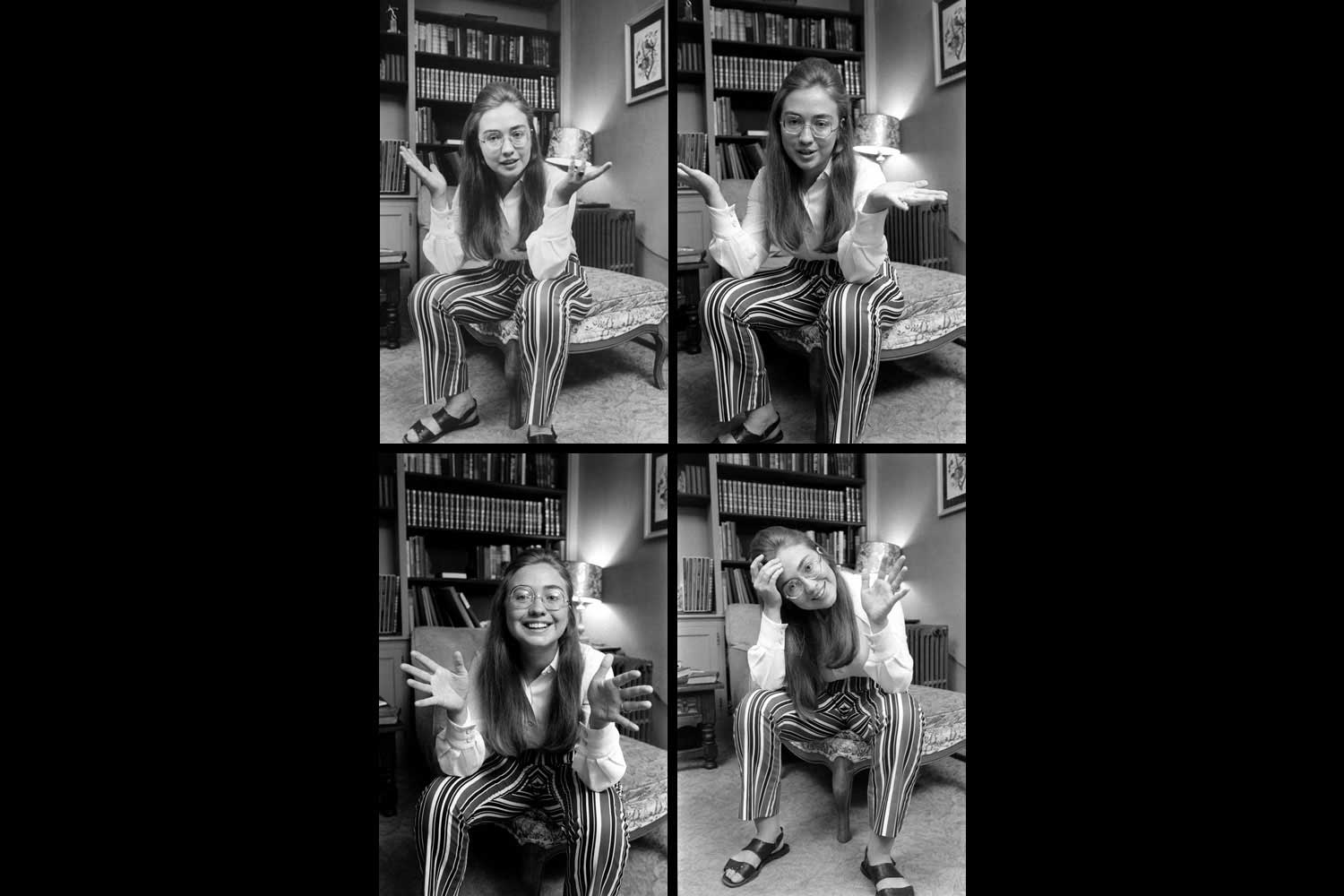


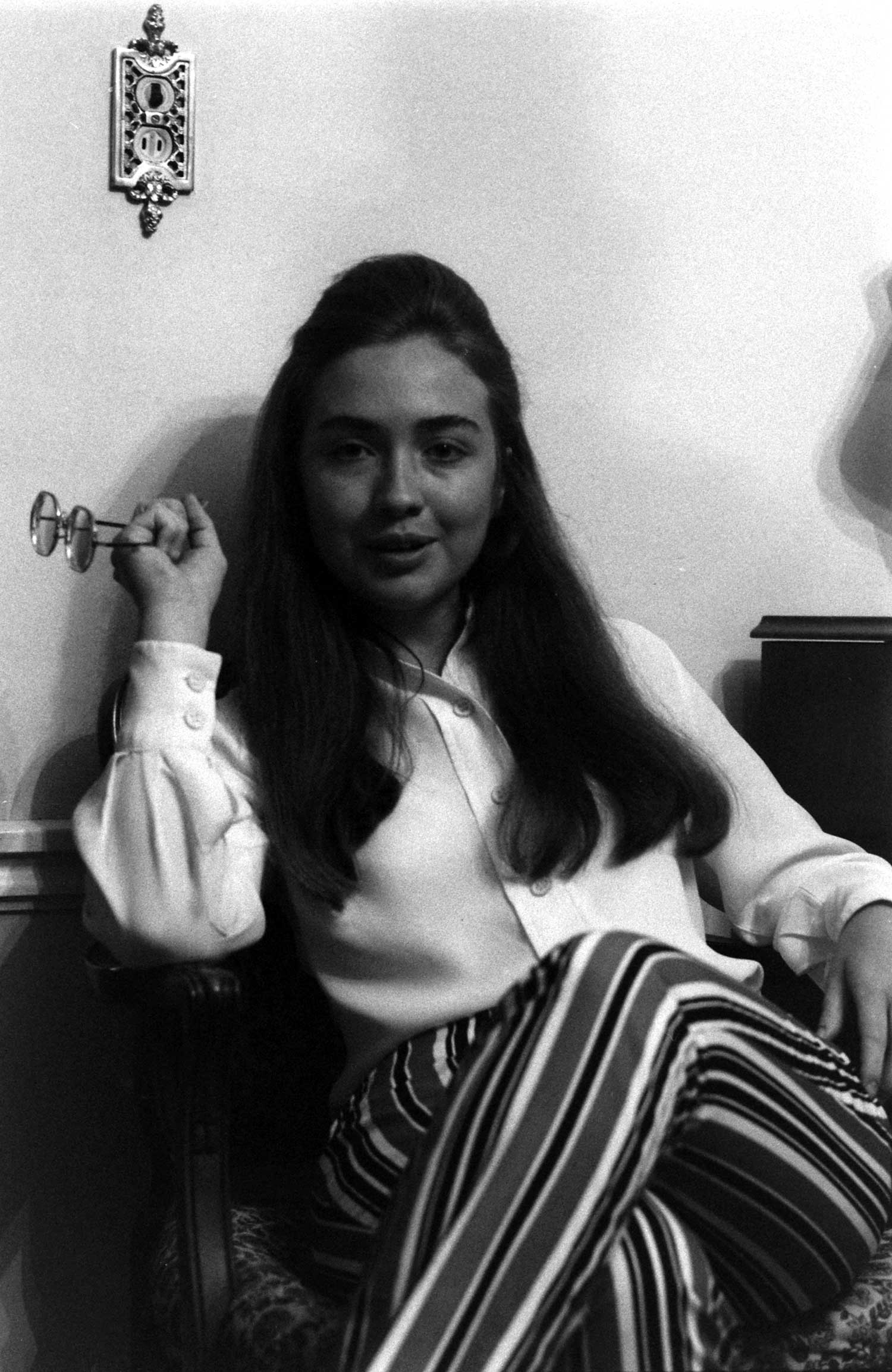
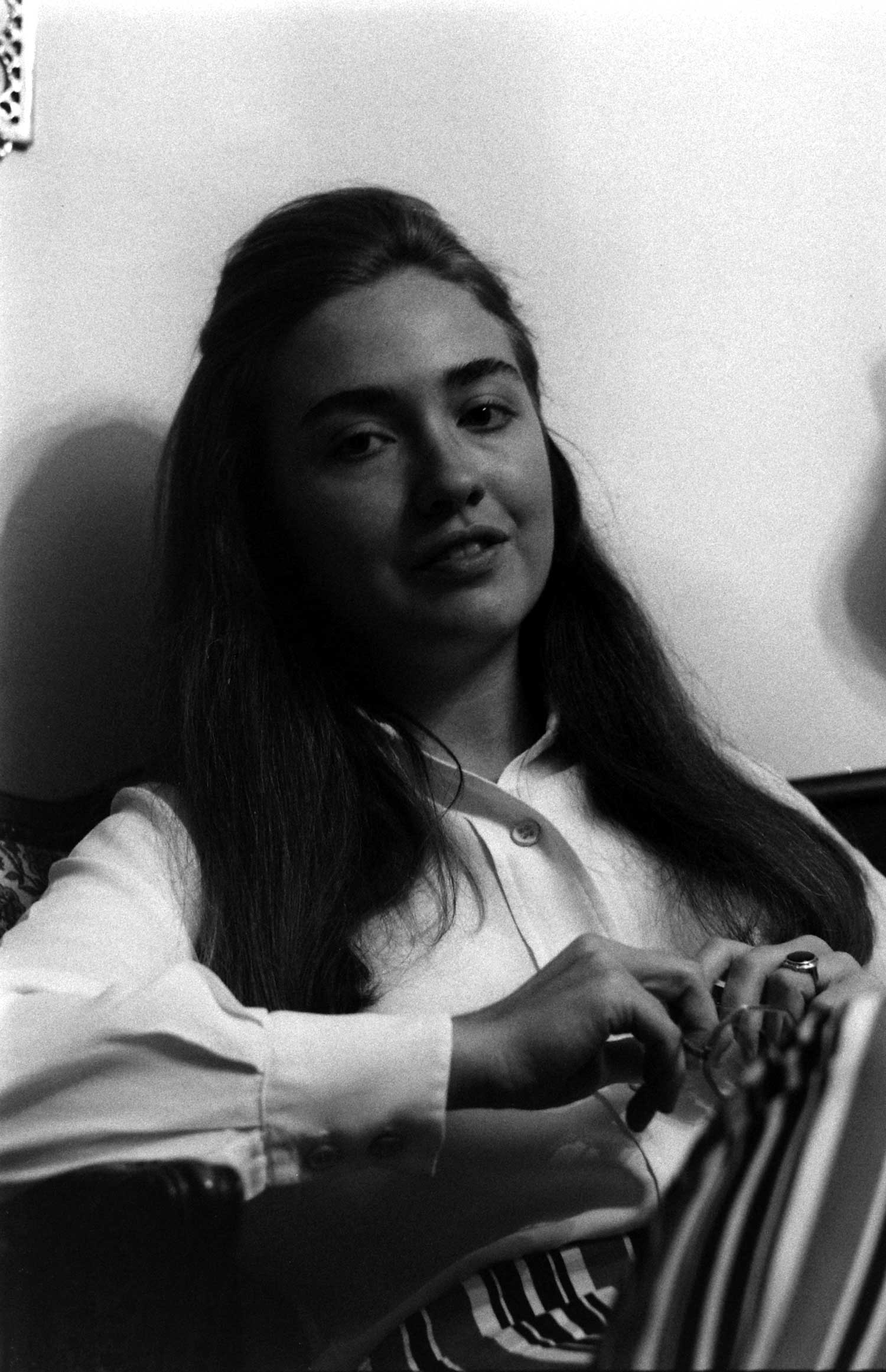
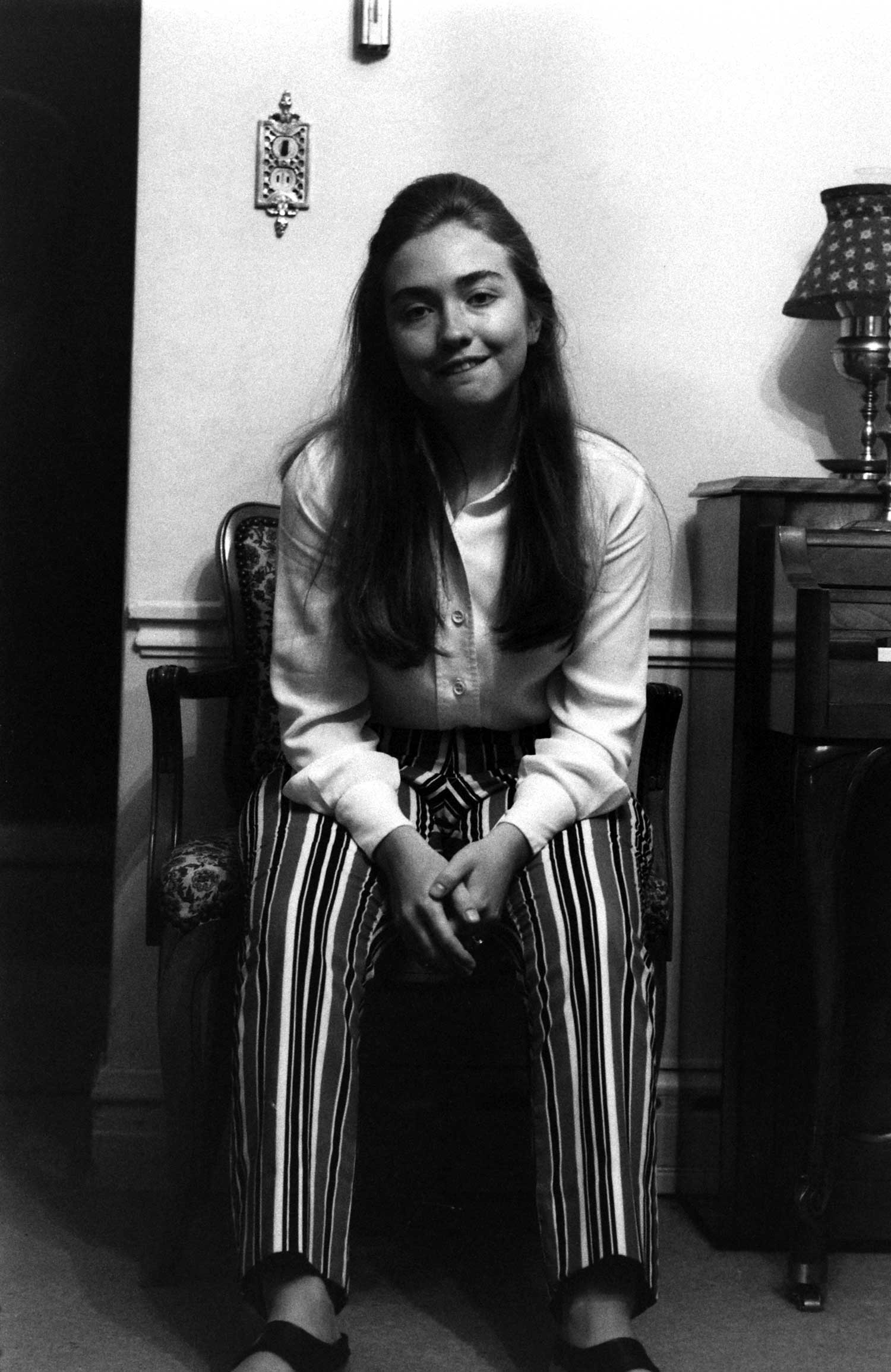
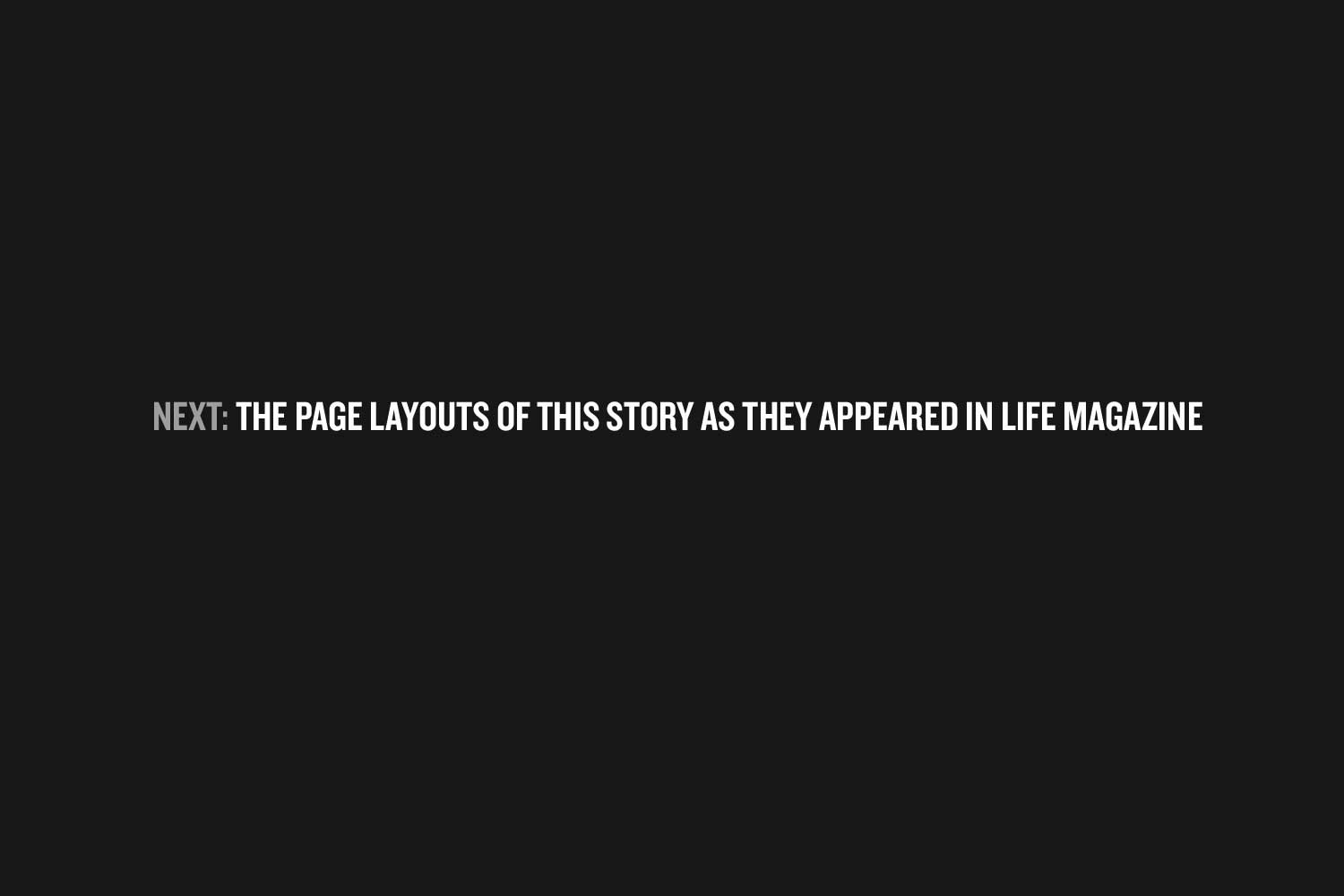
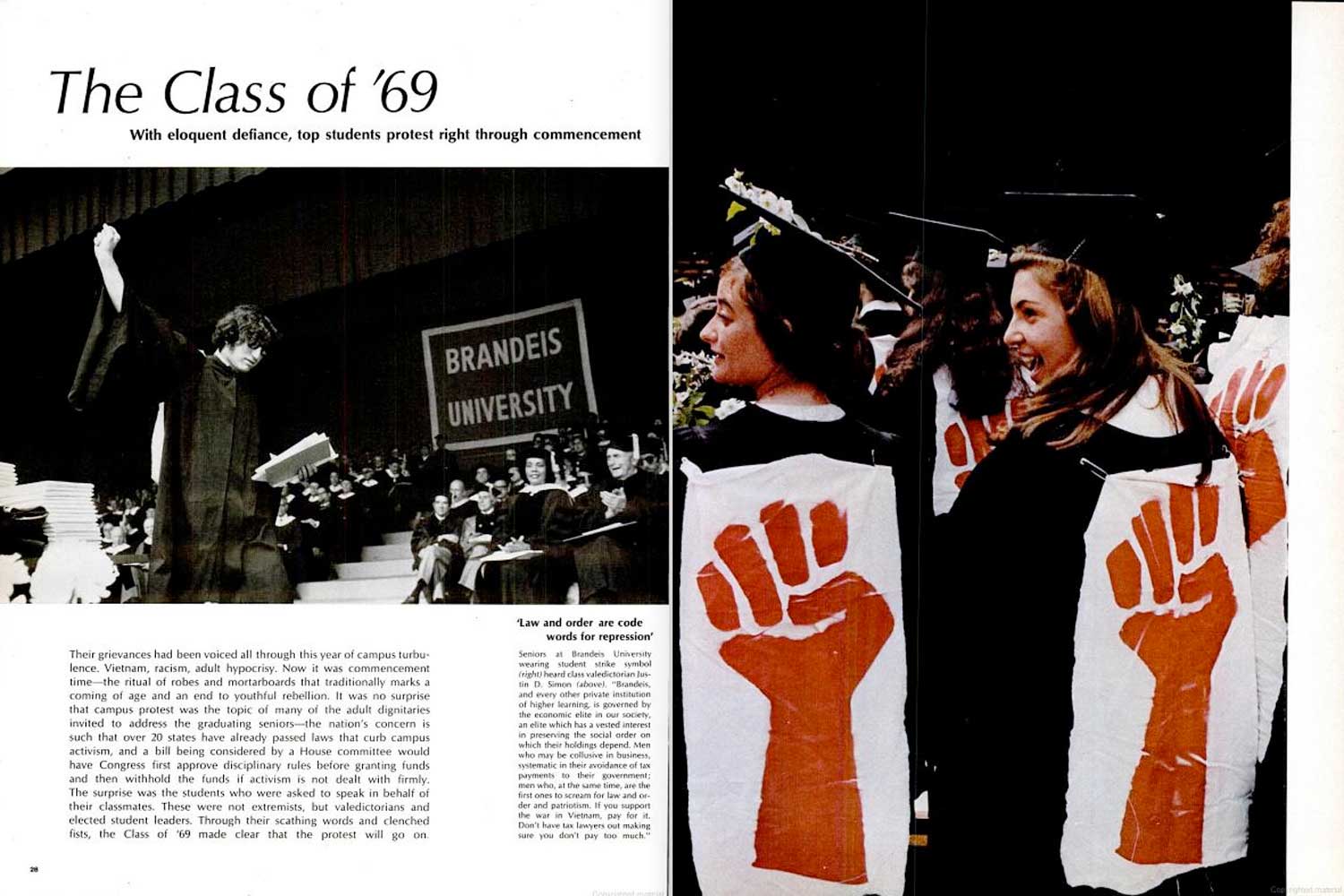
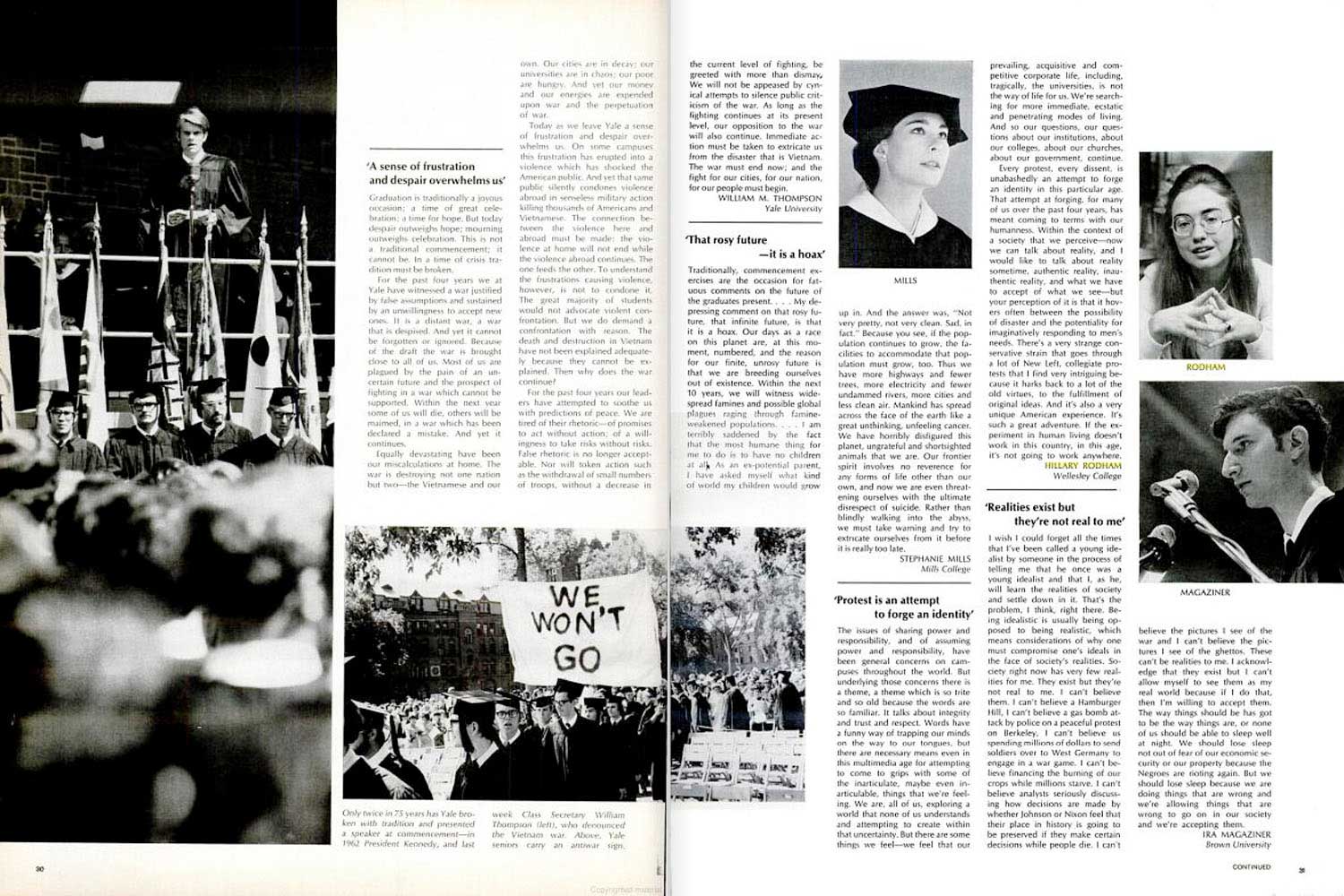
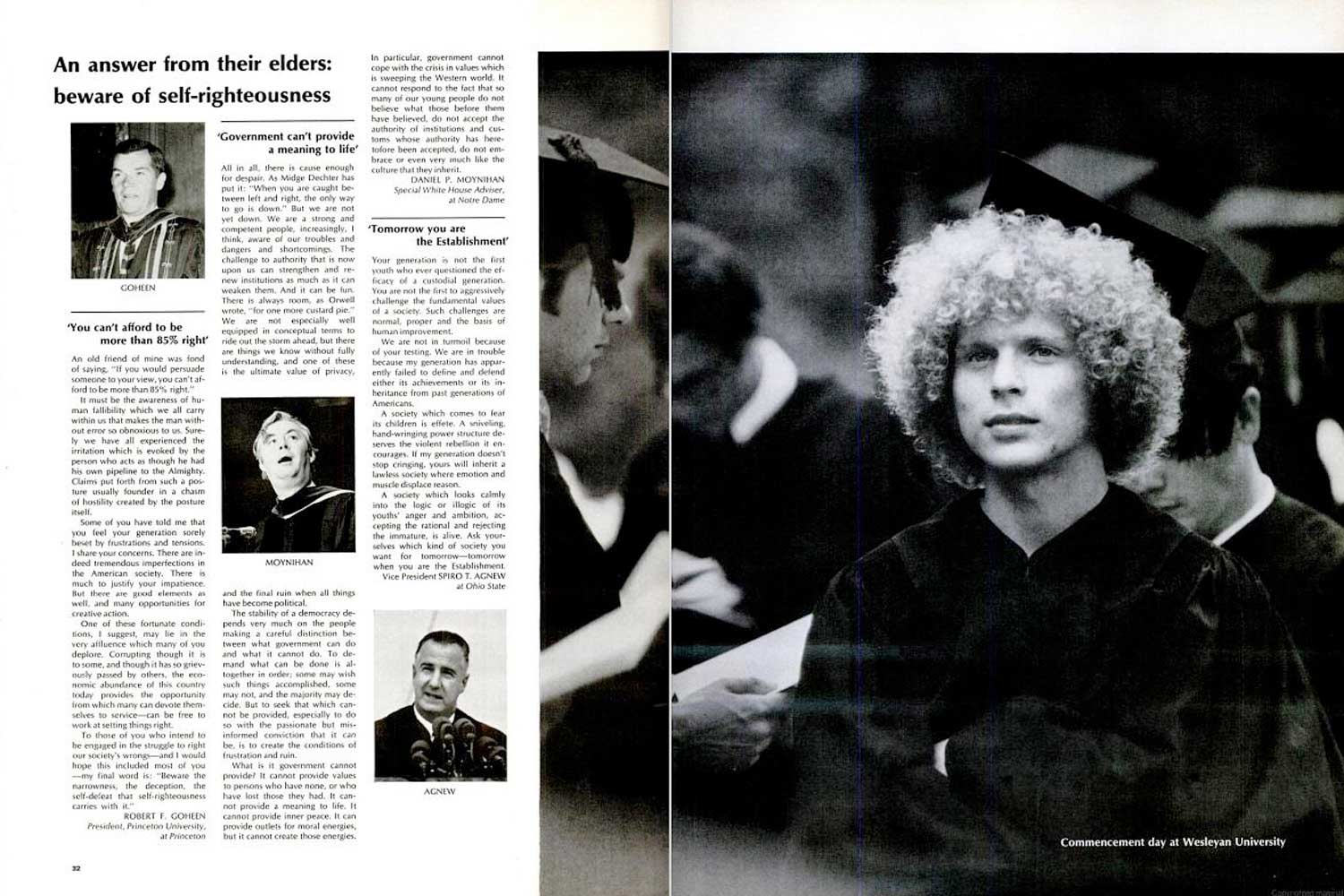
That month, TIME likewise ran a commencement-address round-up that featured Wellesley’s Rodham, choosing to highlight a different—and perhaps more prescient—excerpt from her speech: “More pertinent, perhaps, is the issue raised last week by Class Speaker Hillary Rodham at Wellesley. ‘For too long,’ she said, ‘those who lead us have viewed politics as the art of the possible. The challenge that faces them—and us—now is to practice politics as the art of making possible what appears impossible.'”
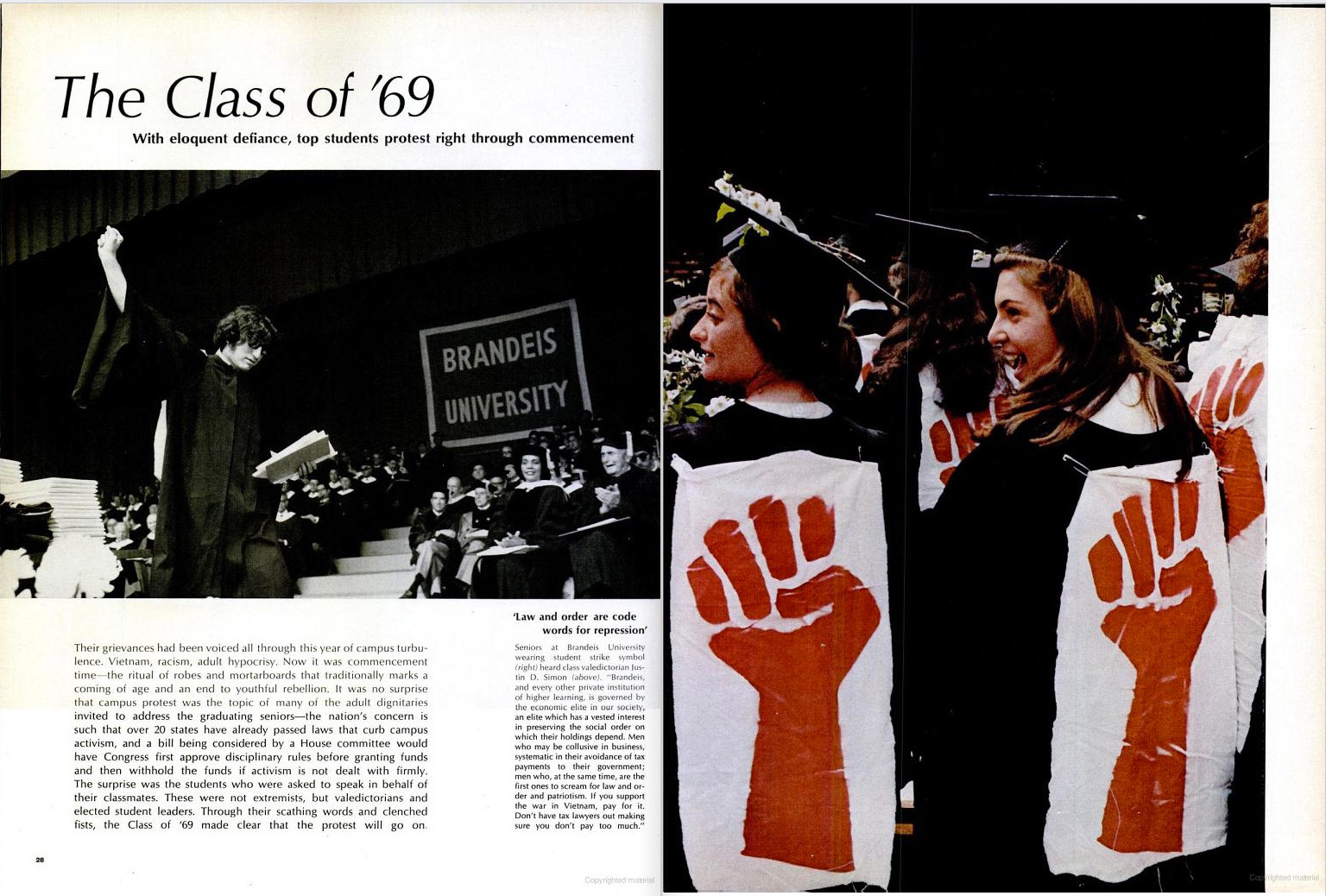
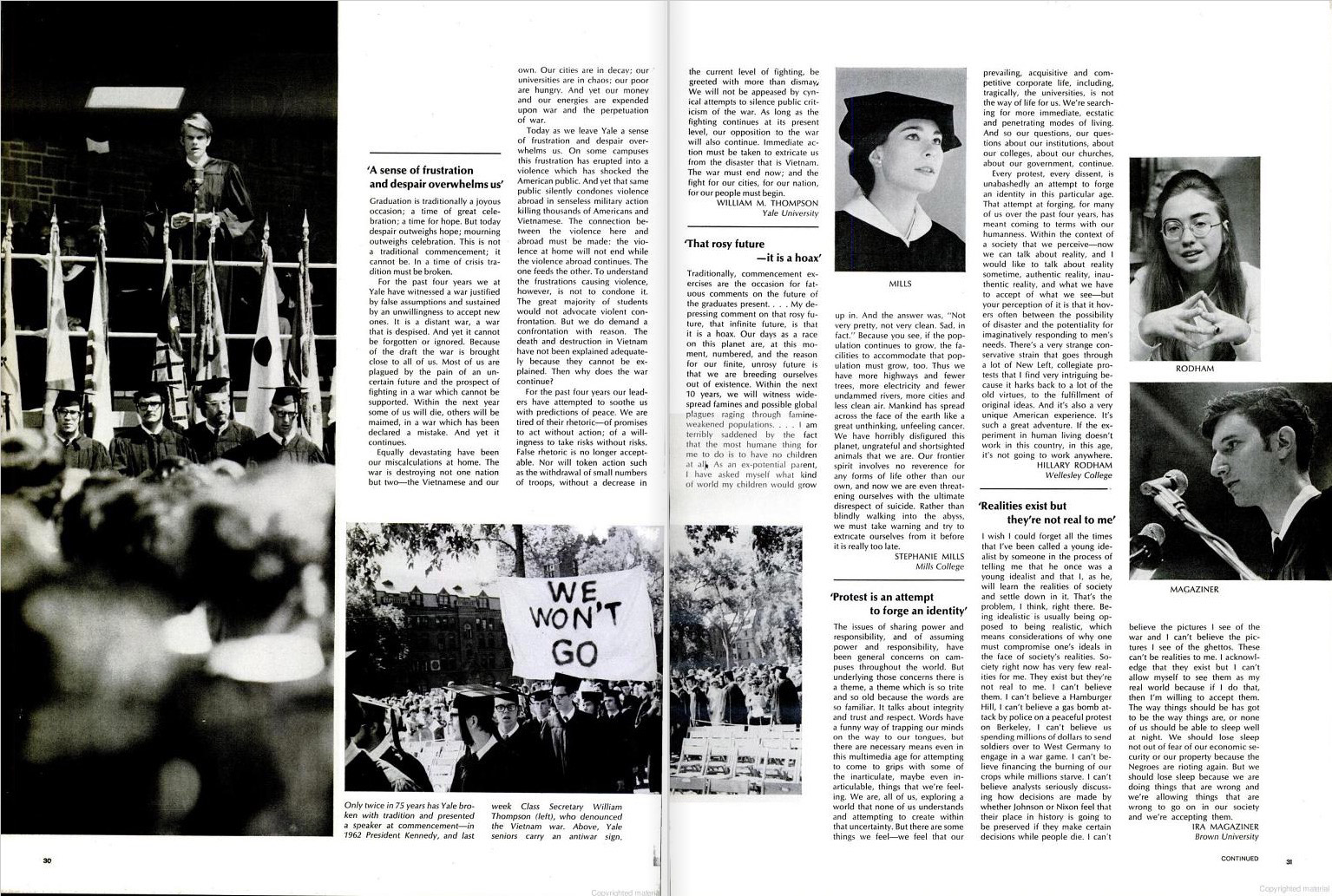
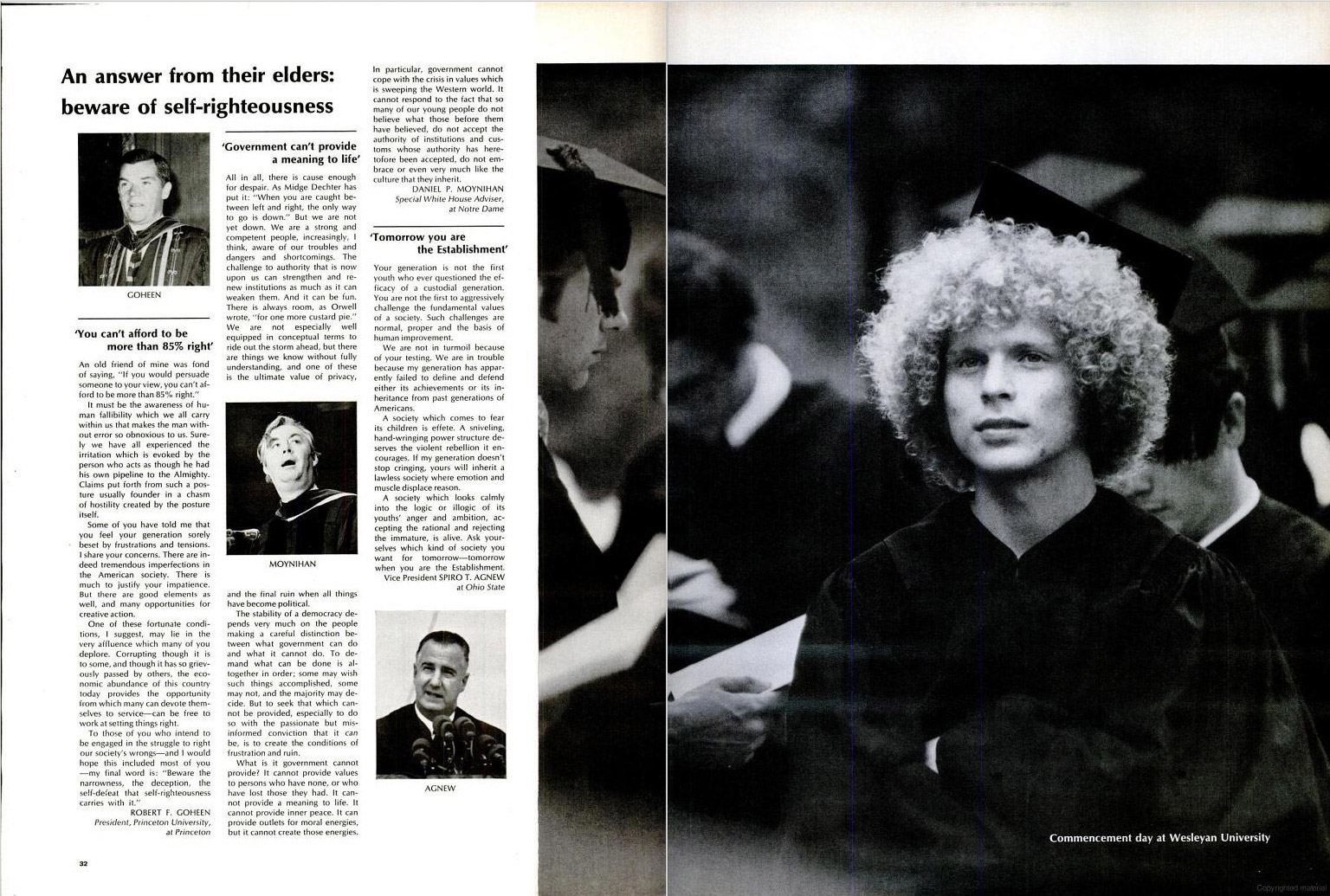
More Must-Reads From TIME
- The 100 Most Influential People of 2024
- The Revolution of Yulia Navalnaya
- 6 Compliments That Land Every Time
- What's the Deal With the Bitcoin Halving?
- If You're Dating Right Now , You're Brave: Column
- The AI That Could Heal a Divided Internet
- Fallout Is a Brilliant Model for the Future of Video Game Adaptations
- Want Weekly Recs on What to Watch, Read, and More? Sign Up for Worth Your Time
Write to Lily Rothman at lily.rothman@time.com